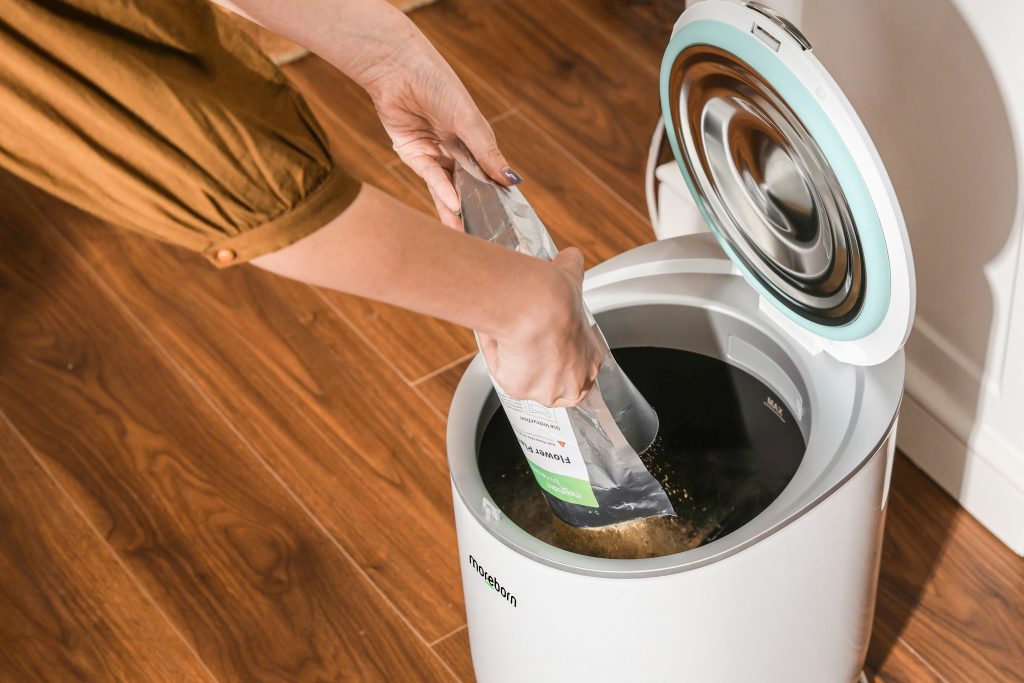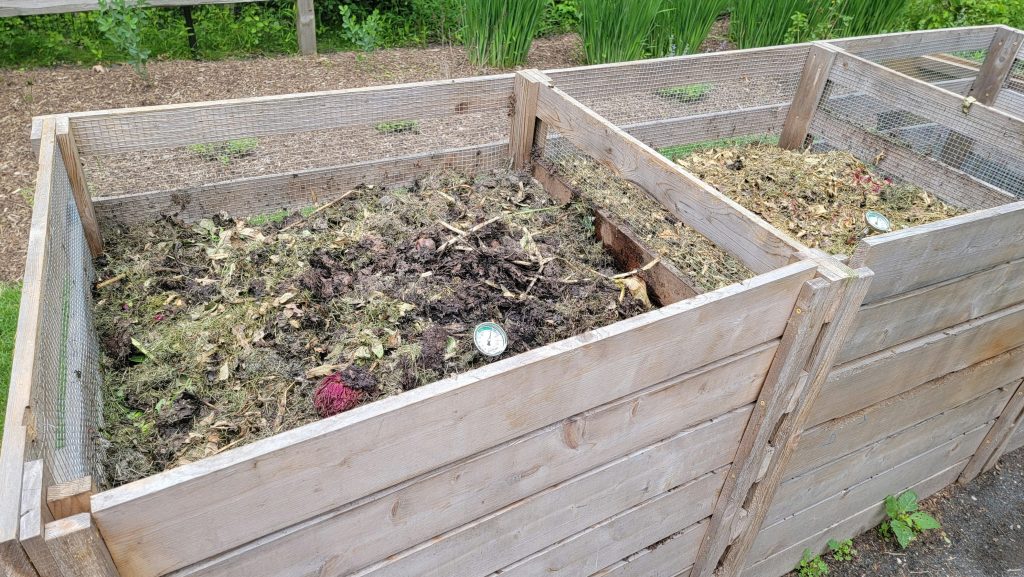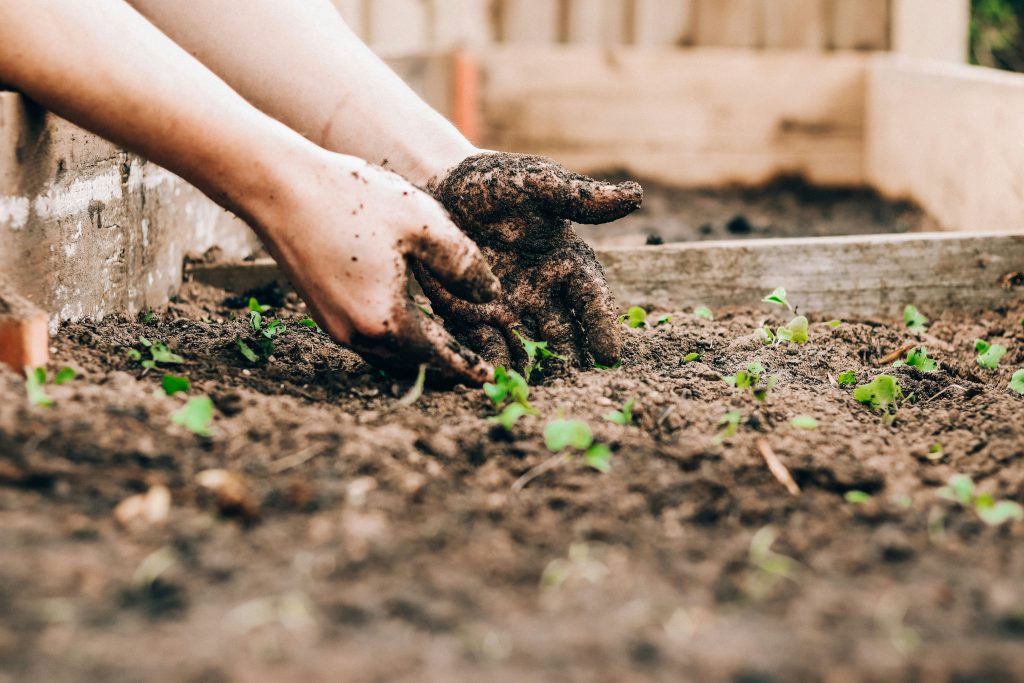Composting in small apartments is rewarding, but many beginners face common composting mistakes like odor, pests, or bins that don’t work. The good news? With the right methods and fixes, you can compost indoors in 2025 without the mess.
The good news? Almost every apartment composting mistake has a solution. In this guide, we’ll cover the most common composting mistakes apartment dwellers make—and how you can fix or prevent them. By the end, you’ll know how to set up a low-odor, low-maintenance compost system that actually works for your lifestyle.
(If you’re still deciding whether composting is worth it at all, check out our in-depth guide: Is Composting Worth It for Small Apartments in 2025? )

Table of Contents
Mistake #1: Using the Wrong Composting Method
Not every composting method works well in small apartments. Traditional outdoor compost piles don’t translate well to balconies or kitchens.
If you’re unsure what can or cannot be composted, the U.S. Environmental Protection Agency (EPA) offers a clear guide to household composting, including which food scraps and materials are safe to use.
How to Fix It
Choose a method designed for small spaces:
- Bokashi bins – airtight and odor-free, great for kitchens.
- Vermicomposting (worm bins) – efficient, but requires attention.
- Electric composters – fast, odor-controlled, but more expensive.
- Community drop-off – store scraps in your freezer until pickup.
👉 Pick based on your lifestyle, not just what’s trendy.
Mistake #2: Letting Food Scraps Pile Up Too Long
A major odor trigger is letting food scraps sit in an open container for days.
How to Fix It
- Use a sealed countertop bin with a carbon filter.
- Freeze scraps until you’re ready to compost them.
- Empty your indoor bin every 2–3 days.
Mistake #3: Adding the Wrong Materials
Apartment composters sometimes toss in things that don’t break down easily (meat, dairy, oily foods). These cause smells, pests, and poor compost quality.
How to Fix It
Stick to “greens” and “browns”:
- ✅ Greens: fruit peels, veggie scraps, coffee grounds, tea bags.
- ✅ Browns: shredded newspaper, cardboard, dried leaves.
- ❌ Avoid: meat, fish, dairy, oils, large citrus rinds.
(Exception: Bokashi bins handle meat/dairy.)
Mistake #4: Not Balancing Greens and Browns
Too many “greens” (wet food scraps) = slimy, smelly mess. Too many “browns” = slow, dry compost.

Beginners often overestimate how much food waste they can compost at once. According to the Natural Resources Defense Council’s Composting 101 guide, balance between “greens” and “browns” is essential for odor-free decomposition.
How to Fix It
Follow the 2:1 rule → two parts browns for every one part greens.
Keep a stash of shredded cardboard or paper towels to balance scraps.
Mistake #5: Forgetting About Airflow
Compost needs oxygen to break down. In small bins, poor airflow leads to rot instead of composting.
How to Fix It
- Stir or shake your bin weekly.
- Choose bins with ventilation holes + filters.
- For worm bins: drill small air holes in the lid.
Mistake #6: Overfeeding Worms (Vermicomposting)
Worm bins are popular in apartments, but beginners often dump in too much food. The worms can’t keep up, leading to odors and pests.
How to Fix It
- Start with ½ pound of food per pound of worms per week.
- Chop scraps small to speed decomposition.
- Monitor: if food is piling up, feed less.
Mistake #7: Ignoring Moisture Levels
Too much moisture = soggy mess. Too little = compost stalls.
How to Fix It
- Compost should feel like a wrung-out sponge.
- Add shredded paper/cardboard to absorb excess liquid.
- Mist with water if too dry.
Mistake #8: Not Controlling Odors
The #1 reason apartment composters quit? Smell.

How to Fix It
- Add more browns (absorbs odor).
- Use charcoal or carbon filters.
- Try Bokashi bran (ferments food, no odor).
- Keep bin out of direct heat/sun.
Mistake #9: Attracting Fruit Flies or Pests
Small scraps in warm kitchens are magnets for pests.
How to Fix It
- Freeze food scraps until use.
- Always cover food waste with browns.
- Use tight-fitting lids.
- For worm bins: bury food deeper.
Mistake #10: Expecting Compost Overnight
Apartment composting isn’t instant—many give up too soon.
How to Fix It
- Traditional compost bins: 2–6 months.
- Bokashi: 4–6 weeks.
- Electric composters: 4–48 hours (but product is “pre-compost,” needs curing).
Patience is key—composting is about the long game.
Mistake #11: Not Using Finished Compost
Many people stop once they produce compost but don’t use it. The result? A pile of soil taking up space in the apartment.
How to Fix It
- Mix compost into balcony/indoor plant soil.
- Donate to community gardens.
- Sprinkle around trees in local parks (if allowed).
- Some cities offer compost drop-off programs.
Mistake #12: Going All-In Too Quickly
New composters sometimes try to compost everything right away, get overwhelmed, and quit.
How to Fix It
- Start small: only compost veggie scraps and coffee grounds.
- Once comfortable, expand to paper, cardboard, etc.
- Keep expectations realistic: you won’t eliminate all trash overnight.
Bonus: 2025 Composting Tools for Apartments
Modern tech makes composting easier than ever:
- Smart compost bins (with odor sensors, app tracking).
- Compact electric composters that fit under counters.
- Subscription services (companies pick up your scraps weekly).
FAQs About Apartment Composting
Q1: What are the most common composting mistakes in apartments?
A1: The top mistakes include using the wrong bin, poor greens-to-browns balance, letting scraps pile up, and ignoring moisture and airflow.
Q2: How can I compost in an apartment without smell?
A2: Use sealed bins, freeze scraps, balance greens with browns, and try Bokashi or electric composters for odor control.
Q3: Can worms survive in an apartment compost bin?
A3: Yes, if managed properly. Don’t overfeed, keep moisture balanced, and maintain a moderate temperature (15–25°C).
Q4: Is apartment composting worth the effort?
A4: Absolutely—if done right, it reduces waste, creates soil, and supports sustainable living.
Q5: Where can I learn more about composting basics?
A: For official guidance, check the EPA’s composting home resource and the NRDC’s Composting 101 guide.
Conclusion
Apartment composting may seem challenging, but most problems come from a few common mistakes—like choosing the wrong method, ignoring moisture balance, or letting food scraps sit too long. With the right setup and habits, composting in small apartments can be clean, odor-free, and highly rewarding.
If you want to dive deeper into whether composting is worth your time and space in 2025, don’t miss our full guide:
👉 Is Composting Worth It for Small Apartments in 2025?
